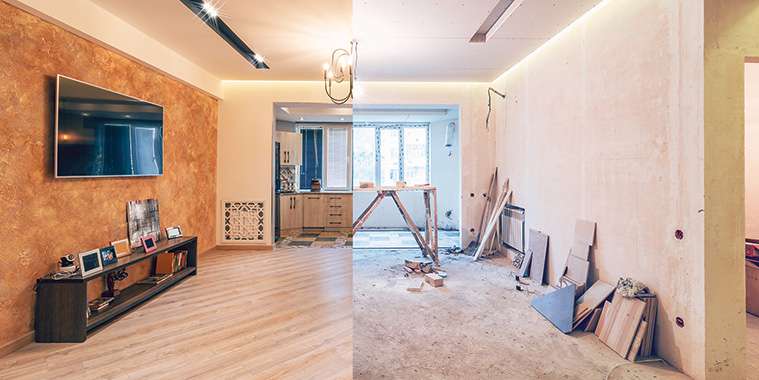By Geoff Kirbyson
There’s no question that buying a fixer-upper is cheaper than a new home but before you consider taking on such a project, make sure you know one end of your tool box from the other.
The challenge with homes that require a fair amount of work until they’re fully liveable isn’t the deficiencies that you can see — it’s those that you can’t.
And that might mean what you consider to be a relatively simple task, such as replacing the mouldy insulation in the attic, could turn into a monster in replacing the rotten roof.
So, it’s safe to say you’re going to need more than a hammer and a few screwdrivers. If you don’t have friends from whom you can borrow a chop saw, air compressor or a top-end cordless drill, it’s time to head to the hardware store to stock up.
Part of the problem, says Catherine Schellenberg, president of Winnipeg REALTORS®, is would-be homeowners and homeowners alike watch too many home improvement shows on television.
“They make everything look super easy. But what they don’t show is everything that goes on behind the scenes, all of the planning and the permitting process.”
Plus, in many cases, lots of sobbing.
Schellenberg said she has seen far too many still-unfinished bathrooms that homeowners thought could be easily updated.
“They open up the walls and they’re filled with moisture because water was penetrating the old tiles. There could be mould. That’s very common,” she said.
“The most fun is demolishing. Who doesn’t want to take a sledgehammer to a wall? But once the wires are hanging and you don’t know anything about electrical, you’re getting into the deep mud. You see people not complete the work because they didn’t understand the overall scale of the job.”
Once the renovations are completed, you’ve got to make sure they were done to code or fit within the building guidelines in your neighbourhood.
REALTORS® can prove to be very valuable assets in this kind of decision-making because they know the process and can advise you if the improvements you’re considering will be worth your while.
“We can help you with a budget that makes sense so you’re not pouring money in that you’re not going to get back out,” she said.
Even when you’re buying a newly-built home, there are additional costs that have to be factored into yourbudget. Up front, you’ll pay for the house and land, applicable fees and taxes, but you may want a fence, deck and grass. Most new homes have plenty of windows to let in as much natural sunlight as possible, too, but they’ll also need window coverings, which can set you back thousands of dollars.
One of the biggest benefits of buying a new home is the “bumper-to-bumper” warranty that comes with it for a year plus continued warranties on various elements, such as your furnace.
It’s also important to remember that for every new component you want to add to your fixer-upper, you’ve got to remove the old one first. With a new build, upgrades are fairly easy because you’re not doing any renovations, you’re merely adding to the existing blueprint, Schellenberg said.
“It comes down to whether people want that new car smell with their home. Some people insist on a new car while others are fine with a used one. Sometimes the decision is budget-driven and sometimes it’s a matter of principle. There’s a buyer for everything but you’ve got to know the ins and outs and any speed bumps that could appear,” she said.



